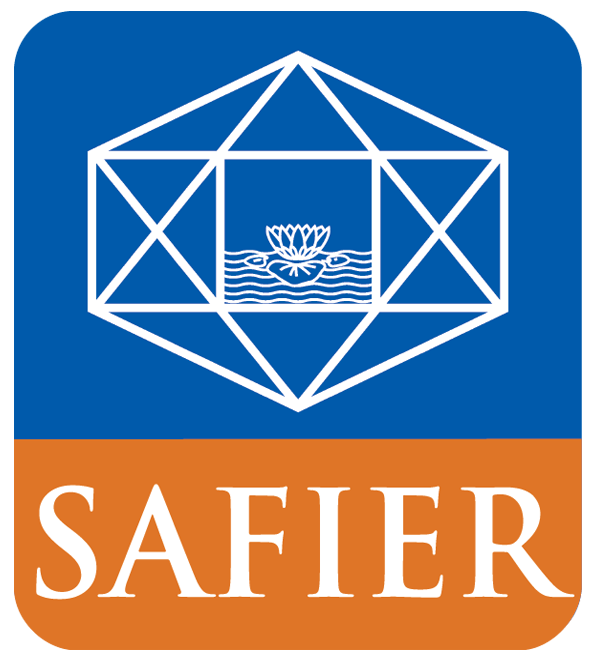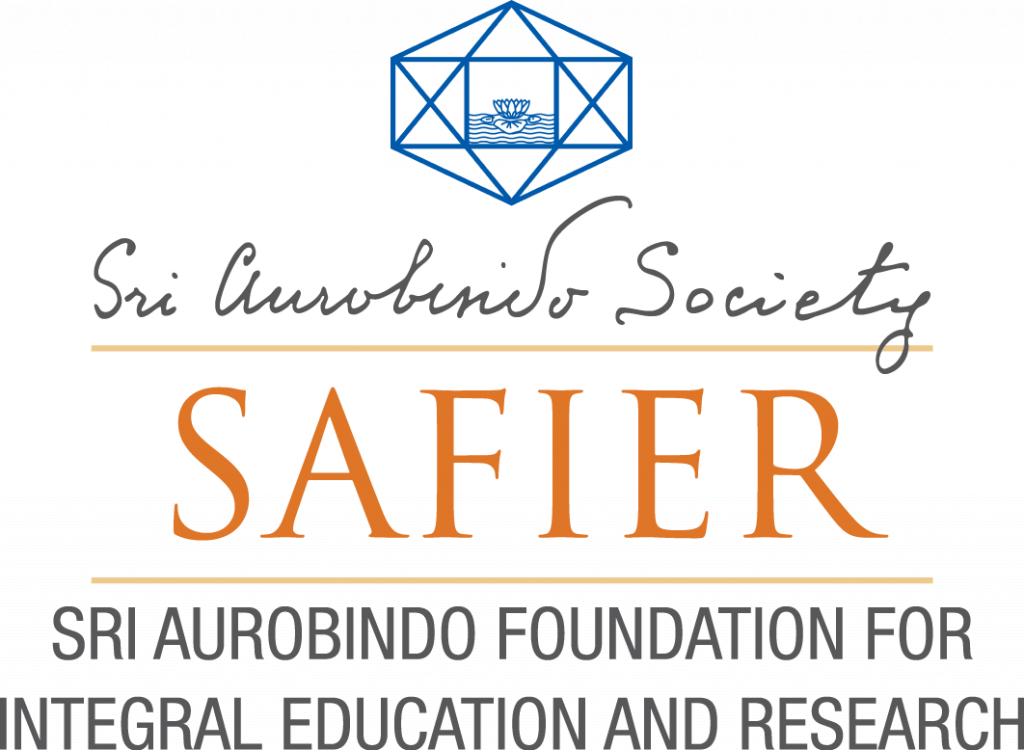Date: December 2015 – April 2016
Place: Sri Aurobindo Centre of New Education, Jodhpur, Rajasthan
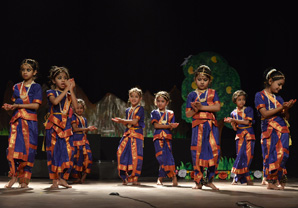 In December 2015 the governing team of Sri Aurobindo Centre of New Education (SACNE), Jodhpur, Rajasthan chose ‘The Genius of India’ as the theme to explore some of the Upanishadic and Yogic wisdom via the performing and visual arts today’s children only have a vague concept of. Our research started along with some of the teachers through a series of study circles. We considered this as a necessity for today’s children, youth and adults who are kept confined within a world of toxic temptations, fear of uncertainty, competitions, greed and sloth through conditionings sponsored by a profit-driven environment. We discovered an ocean of wisdom in Indian texts replete with illuminating legends. Following months of study and contemplation, in the month of March 2016 we adapted the first draft of our play-script in which we included three stories weaved together as one.
In December 2015 the governing team of Sri Aurobindo Centre of New Education (SACNE), Jodhpur, Rajasthan chose ‘The Genius of India’ as the theme to explore some of the Upanishadic and Yogic wisdom via the performing and visual arts today’s children only have a vague concept of. Our research started along with some of the teachers through a series of study circles. We considered this as a necessity for today’s children, youth and adults who are kept confined within a world of toxic temptations, fear of uncertainty, competitions, greed and sloth through conditionings sponsored by a profit-driven environment. We discovered an ocean of wisdom in Indian texts replete with illuminating legends. Following months of study and contemplation, in the month of March 2016 we adapted the first draft of our play-script in which we included three stories weaved together as one.
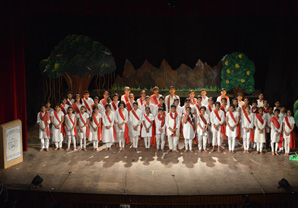 Through this play we began our enquiry into the ways of discovering the unique inner genius one is born with. This quest in stage drama quickly transformed into a quest for all in their real life drama. Preparation for the play and discussions with children and teachers made them understand the manner in which they are being brought up in a society that is marred by competition and uniformity. Through several reflective sessions they realized how children today are made into mere data collection machines consequently becoming subservient to the unconscious industry-driven society. They were able to clearly perceive how their attention has been distracted, kept away from the luminous possibilities that can result from the study of Indian texts. This, they realized, is being done by environing them with advertisements, movies and television programmes that kindle and strengthen the base nature of humans. At the very least we all recognized that the new quest for the higher self within gave us some sense of ethereal joy, which is greater than the fleeting pleasures of succumbing to temptations hovering all around. The entire preparation of the play left our children and teachers with the desire to pursue the single-most important expedition – that of discovering their true role in life within the core of their being and not only in the available career options.
Through this play we began our enquiry into the ways of discovering the unique inner genius one is born with. This quest in stage drama quickly transformed into a quest for all in their real life drama. Preparation for the play and discussions with children and teachers made them understand the manner in which they are being brought up in a society that is marred by competition and uniformity. Through several reflective sessions they realized how children today are made into mere data collection machines consequently becoming subservient to the unconscious industry-driven society. They were able to clearly perceive how their attention has been distracted, kept away from the luminous possibilities that can result from the study of Indian texts. This, they realized, is being done by environing them with advertisements, movies and television programmes that kindle and strengthen the base nature of humans. At the very least we all recognized that the new quest for the higher self within gave us some sense of ethereal joy, which is greater than the fleeting pleasures of succumbing to temptations hovering all around. The entire preparation of the play left our children and teachers with the desire to pursue the single-most important expedition – that of discovering their true role in life within the core of their being and not only in the available career options.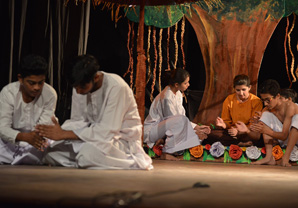 Adaptation of three Upanishadic stories weaved together became our working script, and all the participants were facilitated to take part in the process of directing the play with self-awareness and common sense. Sikandar Khan, the school drama teacher has been bringing all the acts in the play together in a beautiful fashion.
Adaptation of three Upanishadic stories weaved together became our working script, and all the participants were facilitated to take part in the process of directing the play with self-awareness and common sense. Sikandar Khan, the school drama teacher has been bringing all the acts in the play together in a beautiful fashion.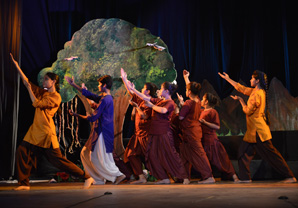 Amidst multidirectional simultaneous movements, Meera Singh, the Director at SACNE, Jodhpur, ensured that everyone remembers that this is not just another annual school programme but one more step towards implementing the process in integral education via the performing and visual arts. Her unwavering belief in the process of Theatre in Education Programme gives us immense confidence and the freedom to realize the possibilities of our potential.
Amidst multidirectional simultaneous movements, Meera Singh, the Director at SACNE, Jodhpur, ensured that everyone remembers that this is not just another annual school programme but one more step towards implementing the process in integral education via the performing and visual arts. Her unwavering belief in the process of Theatre in Education Programme gives us immense confidence and the freedom to realize the possibilities of our potential.